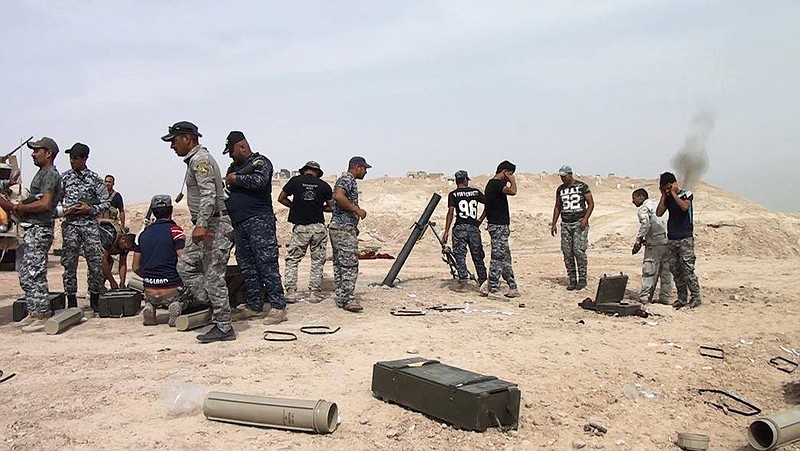WASHINGTON - "The situation in Iraq is grave and deteriorating. Sectarian conflict is the principal challenge to stability."
That's from the opening page of the 2006 Iraq Study Group report. Nine years later, it's haunting to revisit the bipartisan commission review chaired by former Secretary of State James Baker and former Rep. Lee Hamilton. Their grim assessment still holds, and now you have to add Syria, Libya and Yemen as states where "the level of violence is high and growing" and "pessimism is pervasive."
Re-examining the Baker-Hamilton proposals is a good way to refocus U.S. strategy for Iraq and Syria. The report made two basic arguments: Solving the sectarian conflict requires a new push for reconciliation internally, and a new diplomatic offensive externally.
President George W. Bush decided that Baker-Hamilton amounted to surrender, so he boldly took another route, authorizing a troop surge commanded by Gen. David Petraeus to reduce violence so that reconciliation could begin. It seemed to work for a time, but the ruinous sectarian hatred remained - and reignited, disastrously, after U.S. troops left and the Syria crisis was allowed to boil. Now parts of Iraq and Syria, both, are under the banner of the Islamic State.
Even the proponents of Bush's 2007 troop surge don't think massive U.S. military intervention is an option now. American troops can help train and advise Iraqi forces. (And President Obama should allow those U.S. advisers to accompany Iraqi forces into battle.) But "the Obama administration is right that the boots on the ground must be Iraqi," argues Stephen Hadley, who as Bush's national security adviser helped implement the surge strategy.
Hadley is emphatic about the political process that's necessary this time around. Iraq needs "an inclusive government at the national level" and "decentralization of power to provincial governments."
How can the goal of national dialogue be accomplished now in Iraq, when it has failed so many times in the past? The answer is that Iraq needs power-sharing that involves the real stakeholders within the Sunni, Kurdish and Shiite communities. It's time for a bottom-up reconstruction.
What's needed is an organic process of dialogue, such as the 1993 Oslo Accord between the Israelis and Palestinians, the 1995 Dayton Accords among the Balkan states, or the 1998 Good Friday agreement that brought peace to Northern Ireland.
Who could jump-start such an inclusive dialogue? It would require an organization with good contacts among tribal and ethnic groups and experience in mediation. That's a shorthand description of the U.S. Institute for Peace, which, as it happens, sponsored the Baker-Hamilton report and is now chaired by Hadley.
The best hope for Syria is a similar process of internal dialogue, backed by external diplomatic support. Secretary of State John Kerry has been pushing privately for just such a Syrian contact group, which would include the U.S., Russia, Saudi Arabia and, eventually, Iran.
The Syria problem is compounded by the toxic spread of the Islamic State and the al-Qaeda spinoff called Jabhat al-Nusra. These extremists would rush to fill the vacuum if President Bashar al-Assad should fall.
Fear that the jihadists would dominate such a Syrian power vacuum is one reason the CIA recently requested a $1 billion increase for its program of covert training for moderate rebels, which would roughly double their numbers. The House Intelligence Committee is skeptical and rejected the big increase. The House should reconsider: The program, for all its faults, is one of the few checks against total jihadist dominance of the Syrian opposition.
To quote the 2006 report: "There is no magic formula to solve the problems of Iraq" - let alone those of Syria. But the Baker-Hamilton approach is worth another look.
Washington Post Writers Group
